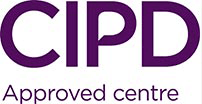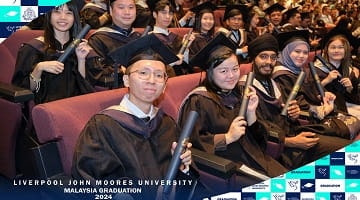About this course
LJMU's Strategic People Management and Practice MA focuses on the practical application of knowledge in different organisational contexts, business sectors and areas of operation.
- Study in a CIPD-approved centre
- Work towards accreditation against the internationally recognised CIPD Profession Map.
- Top up your CIPD Level 7 Diploma from another university or college to a Masters degree
- Part Time Study Option
Increasing labour costs are amongst the most expensive operational spend for many organisations, and their evolving needs demand knowledgeable and capable human resource and people management teams. This course helps support and add value to business growth and development.
As a postgraduate in this specialist area you will be part of an HR community, engaging in study and research with practitioner input through taught sessions, master classes and CIPD Liverpool Group and Branch activities.
The programme provides you with the Chartered Institute of Personnel and Development (CIPD) Advanced (Level 7) Standards. On graduation student members upgrade to Chartered Member, evidencing experience, behaviours and academic achievement.
Liverpool Business School at Liverpool John Moores University is a member of AACSB International — The Association to Advance Collegiate Schools of Business.
AACSB International is a global association of leaders in education and business dedicated to supporting and advancing quality business education worldwide. Through membership, accreditation, research, thought leadership, professional development, and advocacy, AACSB partners with over 1,500 organizations, from more than 90 countries globally. Membership or participation in the Global Education Alliance does not imply accreditation.
Course modules
Discover the building blocks of your programme
Further guidance on modules
Modules are designated core or optional in accordance with professional body requirements, as applicable, and LJMU’s Academic Framework Regulations. Whilst you are required to study core modules, optional modules provide you with an element of choice. Their availability may vary and will be subject to meeting minimum student numbers.
Where changes to modules are necessary these will be communicated as appropriate.
Core modules
Professional accreditation
LJMU is a Chartered Institute of Personnel and Development (CIPD) approved centre and assessment is set internally, with external examiner approval. Completion of this programme results in approval against the knowledge requirements of the CIPD's Advanced Diploma Level Standards.

Your Learning Experience
An insight into teaching on your course
Study hours
Full and Part time cohorts are taught together allowing for and resulting in wider networking opportunities.
The full-time programme (one year) will be running between September 2023 and July 2024, incorporating 3 semesters.
Students will be expected to attend lectures and seminars at the following times: Monday: 14:30hrs - 19:30hrs Tuesday: 14:30hrs - 19:30hrs and three Wednesday block days
Teaching methods
A variety of learning approaches are used including: electronic resources such as e-journals and resources which can be accessed on and off-campus; our virtual learning environment containing session notes which can be accessed in advance of sessions and module guides including indicative reading lists for each session which allow pre-reading of chapters prior to classes.
During the workshop sessions there is a mix of lecturer input; facilitated discussions of organisational approaches; presentations to develop learning of the whole group; discussion groups around research, journal articles; reading; organisational approaches/practice and case study work.
Applied learning
LJMU has an engaged academic team within the Strategic People Management and Practice MA, who are committed to your development and continued success. All members of our teaching team have worked in professional HR and people management-related roles and are Chartered Members or Fellows of CIPD, bringing a professional perspective as well as an academic focus to their sessions.
How learning is monitored on your programme
To cater for the wide-ranging content of our courses and the varied learning preferences of our students, we offer a range of assessment methods on each programme.
Assessments on this course include:
- Written assignments reviewing the implications of major pieces of contemporary research for contemporary organisations
- Written assignments advising on and developing HR strategy and policy in specific organisation/sectoral contexts
- Two examinations (50% of each exam is based around a seen case study)
- Portfolio evidencing development
- A research proposal in preparation for the Masters-level dissertation
- The Masters-level dissertation
There will be opportunities in workshops to discuss assignments, clarify requirements with the module tutor and discuss possible approaches to the work with your colleagues in the group. In the examined modules there will be discussion of approaches to examinations and a revision session at the end of the module. The case study is available two weeks prior to the examination on our virtual learning environment.
Where you will study
The School is based in the Redmonds Building, in the heart of the bustling Mount Pleasant Campus and Liverpool 's growing Knowledge Quarter. The building is home to high quality lecture theatres and seminar rooms, social spaces, and a café. It is only a short walk from LJMU's Aldham Robarts Library, which contains all the resources you will require for your studies.
Liverpool Business School also has a dedicated Management Development Suite, based in a listed building in the historic Georgian Quarter of Liverpool and a short walk from the Redmonds Building. The building has recently undergone £1.2 million investment to provide a professional learning space.
Course tutors

Paul McEvoy Clarke
Programme Leader
Supporting students to make the link between academic theory and concepts about human resources and strategic people management and the actual working practice in the real world is the driving force behind our programme. I want our programme to challenge, develop, stretch and energise our students. I want our students to go out in to the workplace with the confidence and skills to make a difference in the world of HR.
Supporting students to make the link between academic theory and concepts about human resources and strategic people management and the actual working practice in the real world is the driving force behind our programme. I want our programme to challenge, develop, stretch and energise our students. I want our students to go out in to the workplace with the confidence and skills to make a difference in the world of HR.
-
 Lecturer/Senior Lecturer
Lecturer/Senior Lecturer
Career paths
Further your career prospects
LJMU has an excellent employability record with 96% (HESA 2018) of our postgraduates in work or further study six months after graduation. Our applied learning techniques and strong industry connections ensure our students are fully prepared for the workplace on graduation and understand how to apply their knowledge in a real world context.
Successful completion of the MA Strategic People Management and Practice gives you the knowledge requirements at Level 7 from which, with appropriate experience, you will be able to apply for Chartered Membership of the Chartered Institute of Personnel and Development (CIPD).
The emphasis throughout the programme is on analysis and evaluation of different organisational approaches and academic perspectives, enabling you to operate professionally across a range of organisation contexts.
The value placed on the LJMU Masters in Strategic People Management and Practice by employers is clear from the number of public and private sector employers who have repeatedly sent their human resources and people management staff to study at LJMU.
Tuition fees and funding
- Full-time per year:
- £9,200
Fees
The fees quoted above cover registration, tuition, supervision, assessment and examinations as well as library membership and student IT support with access to printed, multimedia and digital resources including programme-appropriate software and on campus wifi.
Financial Support
There are many ways to fund postgraduate study for home and international students. From loans to International Scholarships and subject-specific funding, you’ll find all of the information you need on our specialist postgraduate funding pages. The University offers a range of financial support for students. You'll find all the information you need on our specialist financial support pages including details of the Student Support Fund and other activities to support with the cost of living.
Additional Costs
In addition to fees, students should also keep in mind the cost of:
- Accommodation
- Travel costs and field trips unless paid for by LJMU
- Stationery, IT equipment, professional body membership and graduation gown hire
Entry requirements
You will need:
Qualification requirements
How to apply
Securing your place at LJMU
To apply for this programme, you are required to complete an LJMU online application form. You will need to provide details of previous qualifications and a personal statement outlining why you wish to study this programme.
Your university life
From accommodation and academic support to clubs and societies. Find out what LJMU has to offer.
Related Links
Talk to our students
Connect with a current LJMU student for advice and guidance on university life, courses and more.
See what our students are saying
At LJMU we want you to know you’re making the right choice by studying with us. You can see what our students are saying about their experience with us through their reviews on the following websites:
Related Links
News and views
Browse through the latest news and stories from the university
The University reserves the right to withdraw or make alterations to a course and facilities if necessary; this may be because such changes are deemed to be beneficial to students, are minor in nature and unlikely to impact negatively upon students or become necessary due to circumstances beyond the control of the University. Where this does happen, the University operates a policy of consultation, advice and support to all enrolled students affected by the proposed change to their course or module.





























